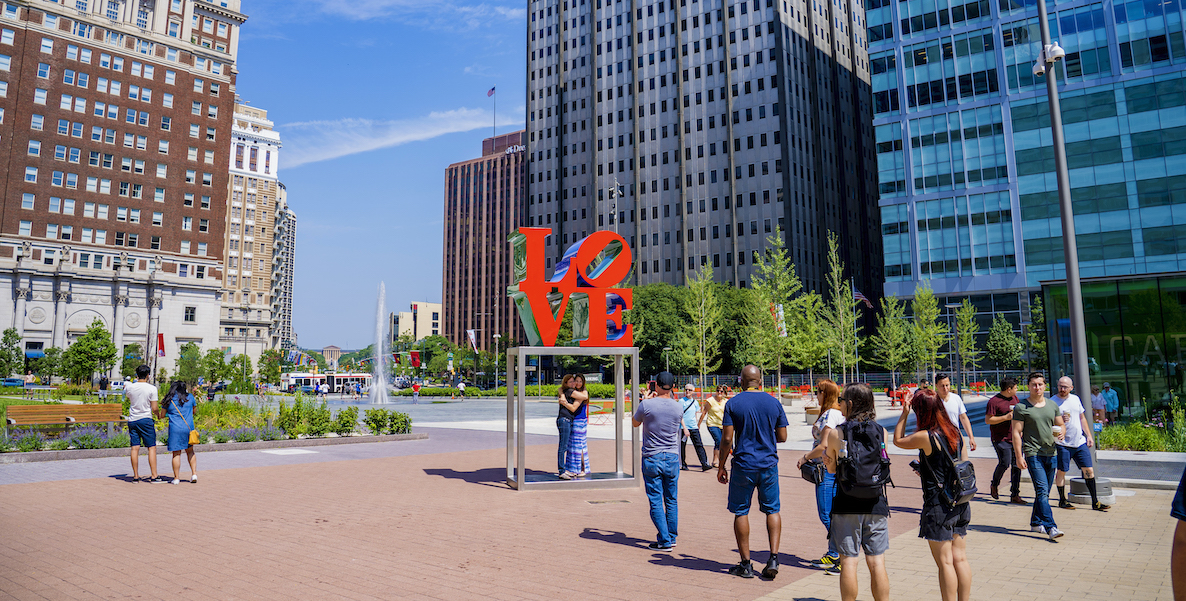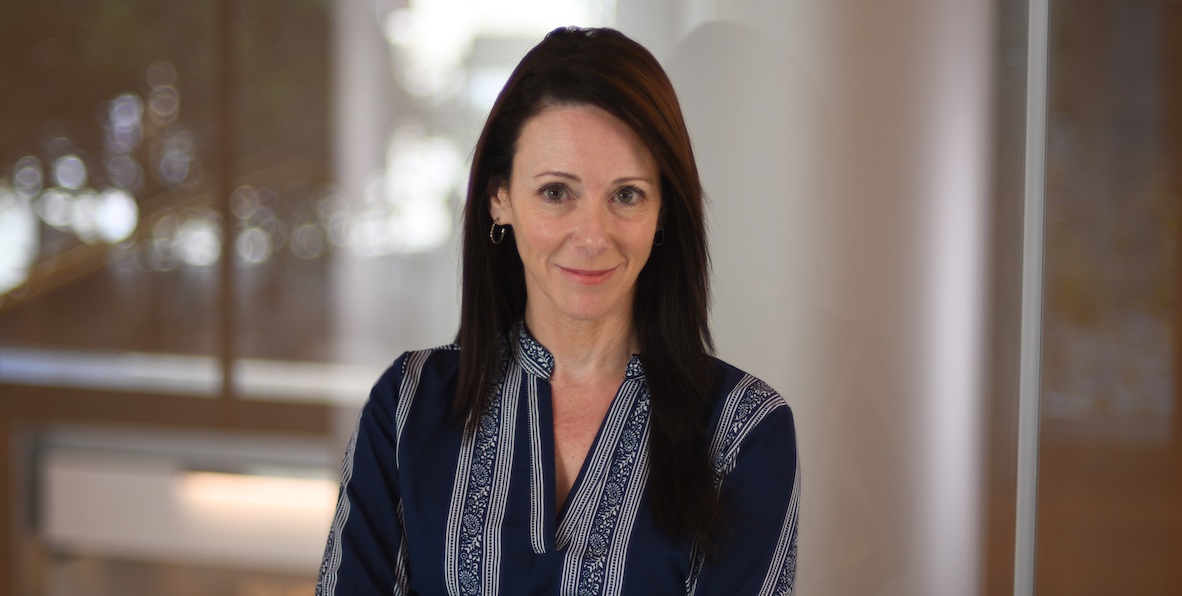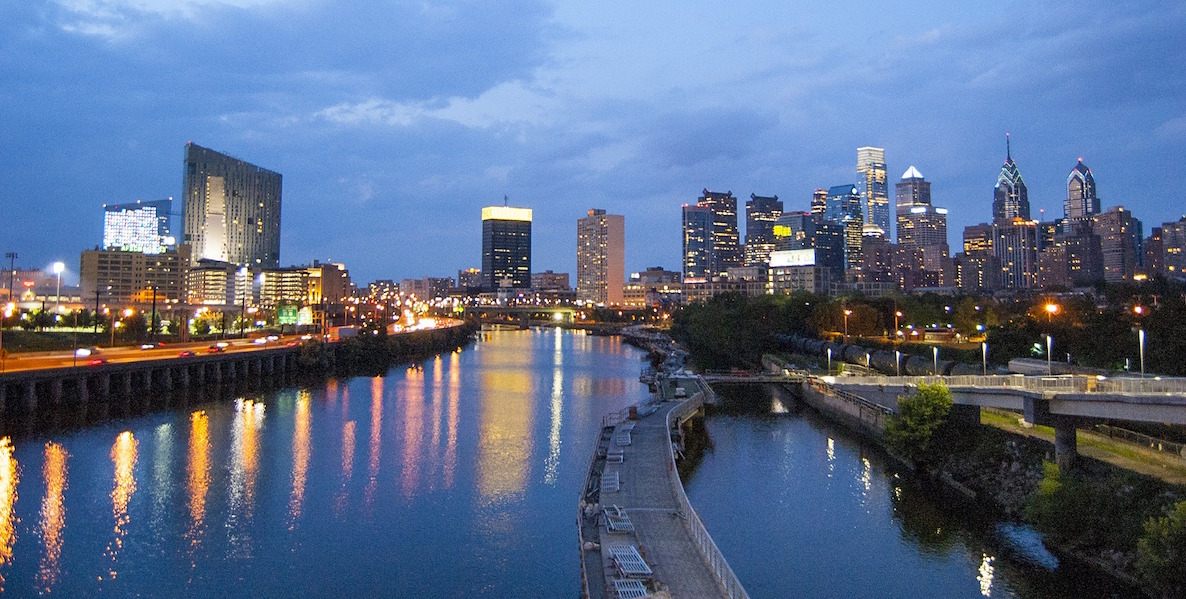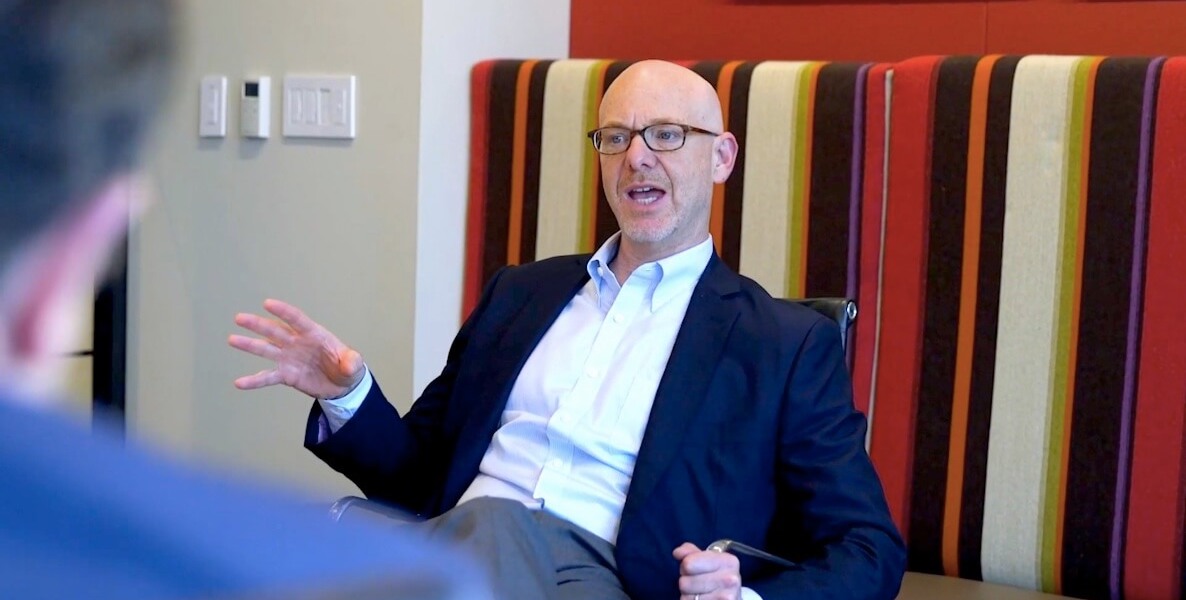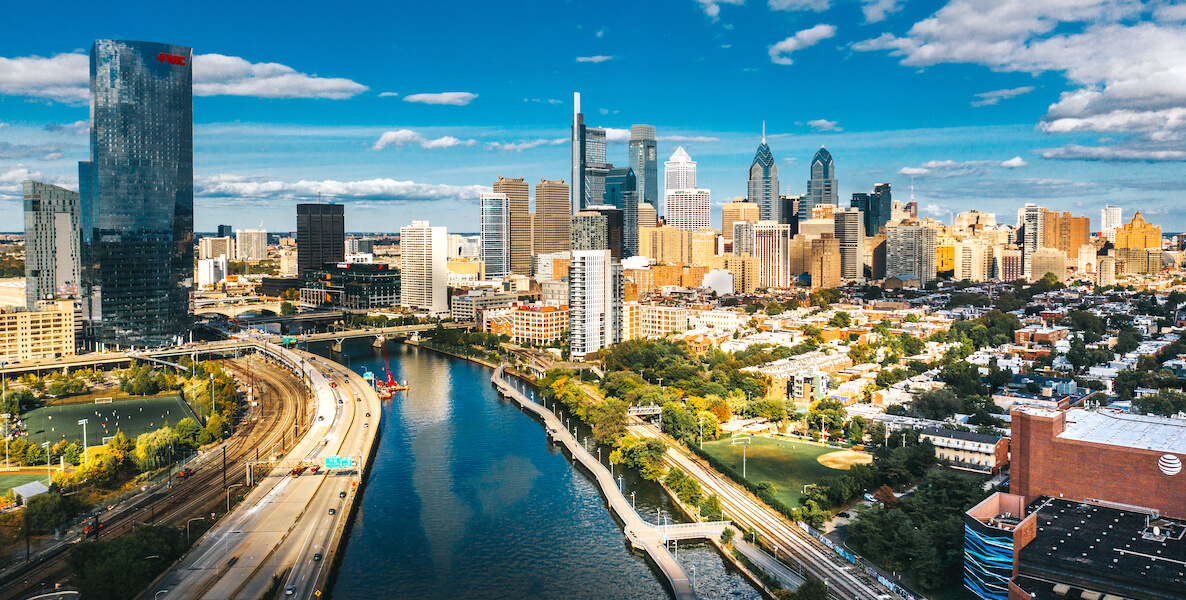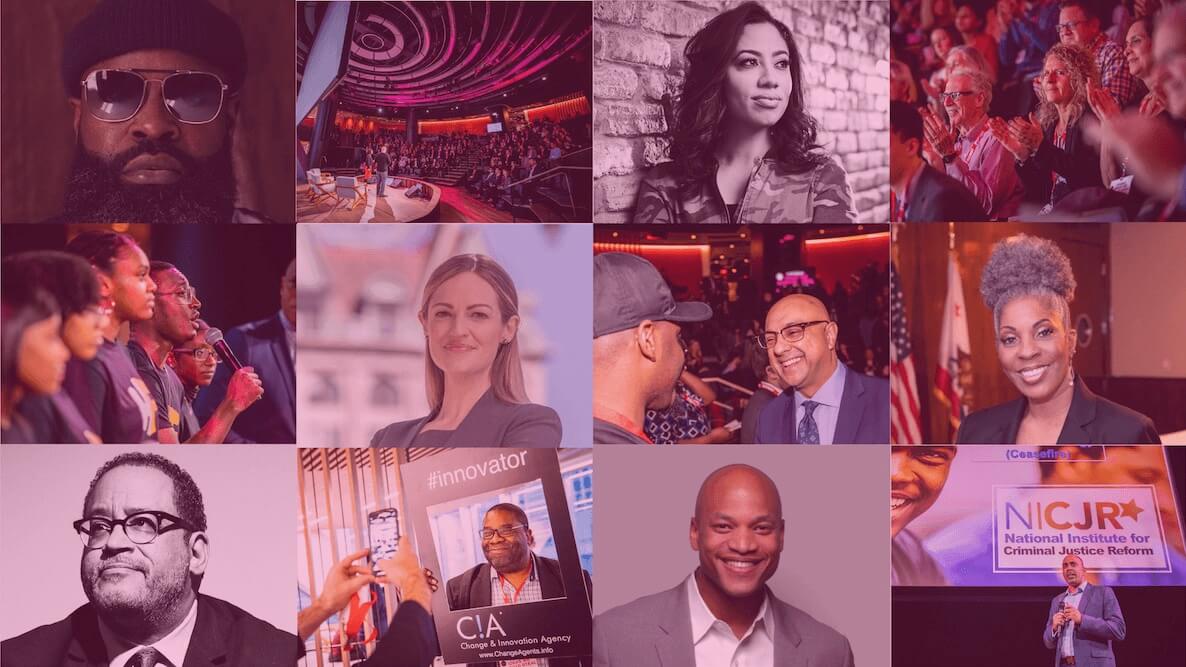Imagine if the same approach that was used to create, say, the latest iPhone or Tesla was applied to improving cities—specifically, Philadelphia.
What if leadership across sectors got together to address the biggest issues plaguing our city—poverty, racism, and so on—and approached them how visionaries like Steve Jobs and Elon Musk did, using design-thinking, or the process of addressing problems through a clear set of steps including, as MIT Sloan explains, ones like these:
“First, fully understand the problem;
Second, explore a wide range of possible solutions;
Third, iterate extensively through prototyping and testing;
Finally, implement through the customary deployment mechanisms.”
That’s precisely the strategy that John Morris and his team at 17 Asset Management bring to the work they do every day, and also to the free virtual event they’re hosting this Thursday: Philly Forward Forum: Celebrating Our Spirit, Investing in our Potential, Transforming Our Future.
![]() This is the second in a series of convenings they’re leading; the first was held virtually in May and addressed Step 1, “fully understanding the problem”—problems—in Philly. Now, they’re moving on to Step 2, exploring a wide range of possible solutions—and the funders who can unlock the ability to implement those solutions. Because, yes, passion matters. Hard work is critical. But like it or not, money unlocks real systemic change.
This is the second in a series of convenings they’re leading; the first was held virtually in May and addressed Step 1, “fully understanding the problem”—problems—in Philly. Now, they’re moving on to Step 2, exploring a wide range of possible solutions—and the funders who can unlock the ability to implement those solutions. Because, yes, passion matters. Hard work is critical. But like it or not, money unlocks real systemic change.
“Capital is the most powerful force in the world. But applied the wrong way, it can be the most destructive,” says Morris, a Princeton native who founded 17 Asset Management two years ago, after 25 years at Merrill Lynch in London, Dubai and Latin America and as the founder of several of his own funds.
The focus of 17 Asset Management is to align capital with the 17 UN Sustainable Development Goals (SDGs), which include aims like No Poverty, No Hunger, Climate Action, Gender Equity and Quality Education. “We see the STGs as a set of 17 big problems to achieve by 2030, and the best methodology of achieving big problems is design thinking,” Morris explains.
“Capital is the most powerful force in the world. But applied the wrong way, it can be the most destructive,” says Morris.
So, whereas some organizations hold events as a means of generating revenue, or celebrating a milestone, or simply (at least in non-Covid times) being together, Morris and his team see events as “place-based change-management…and as an approach to be inclusive to [diverse] stakeholders.”
The thousand-plus people who joined the first event in May, for example, were stakeholders across government, nonprofit, private and institutional investment, and community activism and service. “Those stakeholders are the only ones to create change in places that have things like systemic racism or a cycle of poverty or a digital divide, or crime,” Morris says. “Those are all integrated issues that take stakeholders to come together.”
![]() After the spring event, Morris’ team held smaller follow-up sessions—five in all with groups of 15 to 20, for up to two hours each—which informed their September 2020 report, “The Case for Intentional Investment in Philadelphia: Part 1,” a 74-page document that investigates the key challenges facing Philly, and explores preliminary opportunities for intentional investment.
After the spring event, Morris’ team held smaller follow-up sessions—five in all with groups of 15 to 20, for up to two hours each—which informed their September 2020 report, “The Case for Intentional Investment in Philadelphia: Part 1,” a 74-page document that investigates the key challenges facing Philly, and explores preliminary opportunities for intentional investment.
Thursday’s event, for which about 1,000 people have already registered, will focus on what Morris calls “capital mobilization” into Philadelphia. Problem-solvers from various sectors (more on them later) will speak about investable opportunities that address our many problems.
“We feel a dollar stays a dollar whether it goes through a nonprofit or a for-profit. It’s still that same dollar. And so having nonprofits, and government, private investors, and institutional investors collaborate with their capital to solve a problem gives more function, gives more opportunity to solve the problem,” Morris explains.
He feels strongly that to move Philly forward, we cannot continue to rely solely on government and nonprofits. “The amount of capital in government and in nonprofit is about one-thirtieth of the amount of money in private hands,” he says. “So if we count on the governments and nonprofits to solve the problems all the way to the end, we’re going to fail over and over again. But if we have them be catalytic to bring that long-term capital” here, that’s where the real power lies.
Government and nonprofits can do that by saying, for example, that they’ll commit 5 percent towards an initiative—that they’ll take the first risk—but that they need the rest to come from elsewhere. Or, says Morris, “We need someone from, say, California or a corporation or a family office to say We’re in for $25 million of this initiative, and then the local ones will [jump in] to say We gotta be a part of this too.” Either way, he says, the goal is to gather more interest in investing in Philly.
“Philadelphia should be one of the greatest cities in one of the greatest countries in the world. The only thing getting in the way is ourselves,” Morris says. “The money is there. The opportunity is there. [But] we’ve got a failure to communicate across segments and across our own objectives.”
In some ways, the lineup for the speakers for Thursday’s event reads like a “table of contents” for The Citizen: You’ll hear from Sudan Green, whose efforts center around mental health in marginalized communities; Omar Woodard, executive director of the poverty-fighting organization GreenLight Philadelphia (who, shameless plug, will also be joining the final night of The Citizen’s Ideas We Should Steal Festival on December 22nd).
Other panelists include Leslie Smallwood-Lewis, founder of Mosaic Development Partners; Della Clark, president, The Enterprise Center; Sylvester Mobley, CEO, Coded by Kids; Tayyib Smith, senior principal, Little Giant Creative; Anne Gemmell, founder of Future Works Alliance PHL and occasional contributing writer for The Citizen; and many more.
“Philadelphia should be one of the greatest cities in one of the greatest countries in the world. The only thing getting in the way is ourselves,” Morris says.
The day will wrap up with an invitation for funders to participate in a rapid-fire “commitment session”; anyone who wants will be given the floor for 3 to 5 minutes to declare their intention to fund an initiative.
![]() The timing of the event is not a coincidence, either. January and February is when many of the attendees will be in their board meetings saying Ok how are we going to allocate this? We’ve made this commitment, we’ve made that commitment. “Well, the first capital of our country should be at the top of those list and should get more than its share,” Morris says.
The timing of the event is not a coincidence, either. January and February is when many of the attendees will be in their board meetings saying Ok how are we going to allocate this? We’ve made this commitment, we’ve made that commitment. “Well, the first capital of our country should be at the top of those list and should get more than its share,” Morris says.
Morris hopes the day opens attendees’ eyes to the need to think creatively about job creation here. That’s why guests will hear from Marc Byers, general manager of Motown Records, and Jane Golden, founder and executive director of Mural Arts Philadelphia.
“We’re seeing music and the arts as a big opportunity,” Morris says. “It’s been tried before. But we’re in different times. We have to try again. We see that as a wonderful industry to kind of bring back.” Morris laments the lack of industries in Philadelphia, but sees it as an opportunity for new industries—and, with them, new jobs—to be created.
17 Asset Management will use January and February to further extrapolate particular investable opportunities, and the plan is to have a professional investment conference after that.
“Philadelphia is very investable,” Morris says. “And we want to promote Philly to foundations, institutions and corporations that are saying they want to make a difference.”
Dec 17, 9:30am to 6pm EST, virtual; details here




